Kaathal The Core director Jeo Baby - I believe the socially constructed idea of family is a failure | Exclusive
Kaathal - The Core director Jeo Baby gives an exclusive insight into the making, reception and societal reflections of Mammootty and Jyotika-starrer, which is streaming on Amazon Prime Video
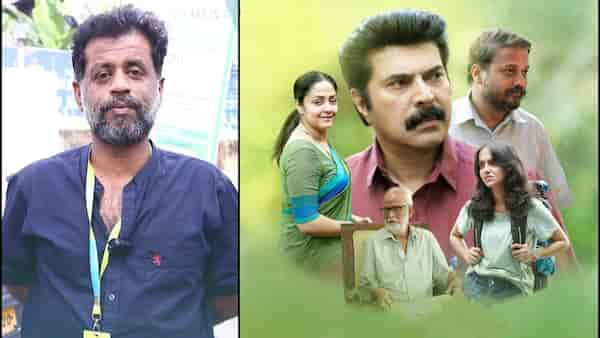
Last Updated: 08.00 PM, Jan 08, 2024
Since its theatrical release in late November, every list about the best Indian films that released in 2023 had featured Mammootty and Jyotika’s Malayalam movie Kaathal - The Core , which revolves around a loveless 20-year-old marriage. It’s arguably a seminal film as far as mainstream Malayalam cinema featuring LGBTQIA+ content is concerned, and given that it’s helmed by the same filmmaker – Jeo Baby – who directed The Great Indian Kitchen, only elevates its importance.
In an exclusive interview with OTTplay post its OTT release on Amazon Prime Video, the filmmaker talks about what went into creating the movie, the appreciation it got and also the criticisms - including forcing its protagonist to ‘come out’ and the lack of physical intimacy scenes between its homosexual characters.
Kaathal – The Core talks about an uncomfortable reality for a lot of people, but in the most dignified manner. While making the film, how much effort was spent in creating this world where people, at least on the surface, weren’t as harsh as in real life; the only real danger for its characters were their own fears that they had to confront for themselves?
Before Adarsh and Paulson brought me the screenplay of Kaathal, I had heard a few other scripts based on such content. But those, despite being relevant, didn’t excite me much. What hooked me about Kaathal was Omana’s life for so many years. It had people who are in so much pain despite having done nothing wrong because of the construct of our society. Be it Omana, Mathew, their fathers, Thankan; all of them aren’t able to open their minds wholeheartedly to love or be close to each other.
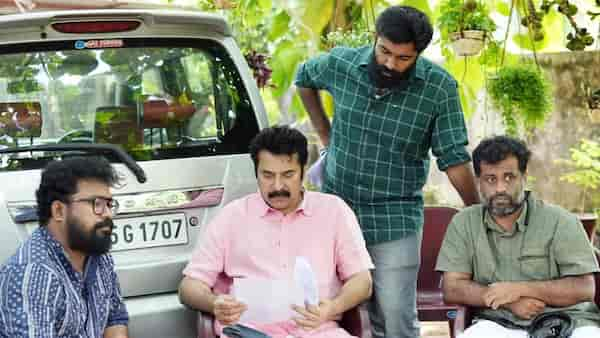
This is not just the case of people in the LGBTQIA+ community, it’s the same for those in heterosexual groups; there are people who can't study the course they want to, wear what they want to or marry whom they want to. We have all faced this; in the concept of family, we are all equals but when such an issue comes up, you feel alone. Those are the elements that attracted me to this script.
Also read: Kaathal The Core – 5 instances that we wish were explored more in Mammootty and Jyotika’s film
I told both Adarsh and Paulson that I want this to become a film that I envision and if they can support me. They were fully onboard and that’s how the movie took its current form. We had three rounds of discussions before taking it to Mammukka and then we incorporated his suggestions too. It took us quite a lot of time.
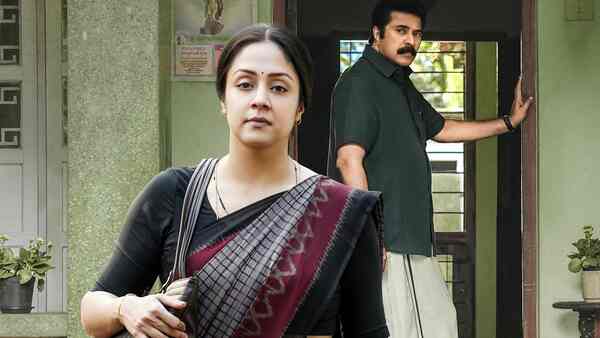
A major reason the movie has touched so many is that it extensively accounts for the perspective of Omana, who is trapped in the marriage. It’s her decision that leads to the liberation of so many other lives. Do you believe that this perspective helped Kaathal, which deals with a relevant and important subject, reach more people compared to other films that have tackled this subject before?
We didn’t purposely go out with the intention of making a movie from a woman’s perspective, but this screenplay demanded that. This movie was always with Omana; but at the same time it also accounted for the lives of ‘chaachan’, Mathew and Thankan. What Omana does is what impacts their lives. It’s 20 years of her life that she has lost because she couldn’t make a decision. For an independent citizen in India who lives with her family, it takes that much time to make a decision because that is our social scenario. What happens after she makes that decision is what the film is about. I think maybe that’s what worked.
Also read: Parvathy on impact of Kaathal The Core, 'Amid thrill of hate, Mammootty leading with love'
Irrespective of Omana and Mathew’s physical relationship, they love each other as individuals to an extent and understand each other to a point. The audience could connect to that and that’s the reason they watched it in theatres and are now rewatching it on OTT.
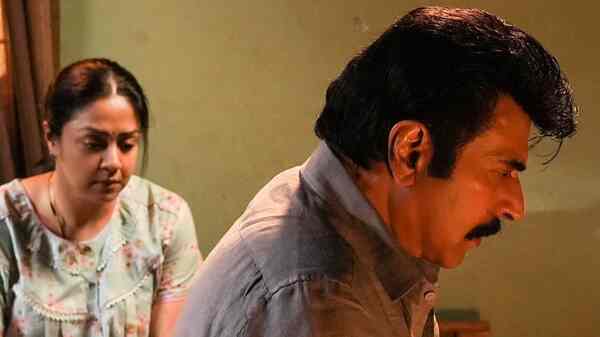
The film is also about ‘coming out’ and how this has a huge impact on the person and the community. In Mathew’s case, that decision wasn’t his. There are people who would agree that it entirely should be a personal choice. And yet, it is the responsibility of a family and the society to make it a safe place for everybody to be and express who they are. Why, despite all the progressiveness we stake claim to, this is still not happening – not even in a State like Kerala?
I think the socially constructed concept of family is sort of a failure. It’s a system where humanity is bound to fail. We are trying to hold it together with ‘values’ like love, commitment and trust. This is not possible for humans all the time. These are problems that arise when we try to build something based on non-existent values.
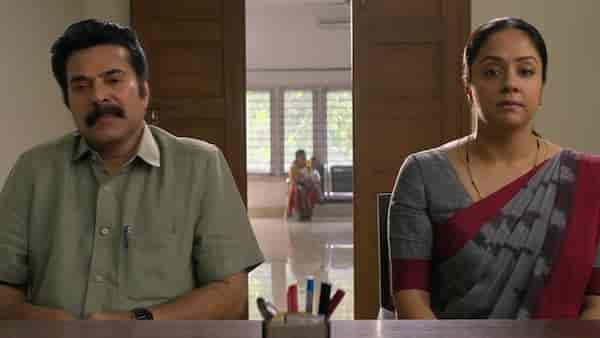
In the case of Mathew, there’s an accusation that he was forced to come out. It’s a genuine criticism and we should never make someone come out; it’s entirely that person’s choice. They can choose not to come out in their life. But in Kaathal, the reason he is forced to come out is because of the family system. Why can’t Omana and Mathew file for mutual divorce? If they decided to do that, they didn’t have to give any reason. But Mathew couldn’t do it, neither could Omana. She tells her father. If he had got involved and asked them to let his daughter out of this marriage and not let her go back to Mathew, it’s over. They wouldn’t even have had to give any explanation. But her father wasn’t accepting any of this; she was in love with another person, but he didn’t agree to that relationship. He believed that if she got married, she would move on. So, for her, this was the only option and when she chooses that, Mathew has to confront the problems.
Also, most importantly, Mathew comes out in the film, on his own. He doesn’t accept that he is gay in court, he reveals it only to Omana. When Omana asks him ‘shouldn’t we choose a life that we want?’, then Mathew comes out in a video, which is what gets shared widely on social media. So, it’s entirely his decision.
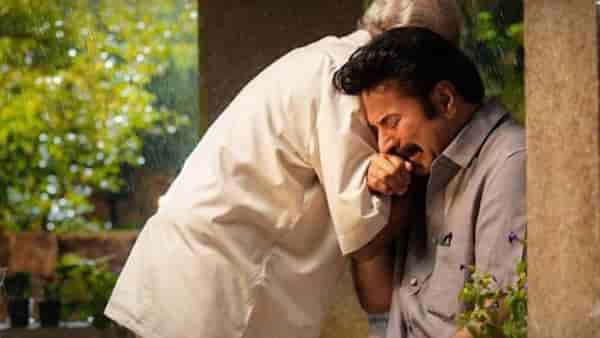
The core of Kaathal is about communication - how it leads to understanding and finally, acceptance. But this is conveyed in the most minimal manner in the film, forcing the viewers to understand and interpret. Was that always deliberate, because few words are exchanged between its main characters – Omana, Mathew, Thankan and ‘chaachan’?
It was. During the moment that Mathew and Thankan meet, they can’t even look at each other; it’s not because they don’t want to but they just can’t. It’s because of our society; even in the court scenes, they say they used to secretly meet each other. So, we didn’t want them to say anything or have eye contact. There’s a distance between them; no matter how much they believe that they are in each other’s hearts, they can’t touch each other or even be seen close to each other. When Mathew gives him the pamphlet in the scene they meet, you can see that in his hands; he is not even able to give that properly to the person he loves the most. Mammukka has brilliantly portrayed it.
These are the factors that made me want to do this movie, especially the distance between these characters. To symbolise this distance between the characters, I have used track shots extensively in the film. I laughed when I read reviews that said that the film is static. (Cinematographer) Salu (K Thomas) and I had discussed and planned all of this. If you see, there are track shots between Mathew and his daughter, Mathew and Omana, in church and in the end, we connect Mathew and Thankan with a track shot. I love doing such things. I knew I could bring such cinematic moments through cinematography with this film.
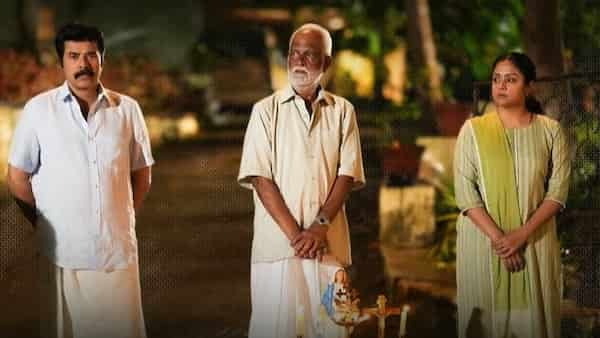
In a recent interview, you said the only criticism that would matter to you with regards to the film are the ones from the LGBTQIA+ community. One grouse was that there were no sequences showing the physical intimacy between Mathew and Thankan.
With regards to the community, they would have expected a physical-intimacy sequence. It is relevant to them because they face those questions. If a film with a superstar like Mammootty would have featured that aspect too, it could have made it easier for them; it could have helped normalise the fact that two men or two women kiss. But in the film, we wanted to symbolise the relationships with the individuals’ hearts and minds. Be it the one with Mathew and Thankan, Mathew and Omana or Mathew and ‘chaachan’, they all love each other but none of them touch or caress each other. That’s the treatment the screenplay demanded and that’s why we refrained from that; it’s not out of fear or because anybody was unwilling to do it.
Kaathal – The Core is also among the first few films in Malayalam mainstream cinema that touch on this subject. There were Moothon and Sanchaaram before this. So, it’s just the beginning phase and there were problems and limitations because of that. That said, Kaathal has given rise to enough questions that would serve as ‘elements to keep in mind’ when we or other filmmakers do a movie in this area in the future.
I am not dismissing the criticism; I see it as relevant – including the one about forcing the protagonist to come out. That’s the responsibility of art; it has to lead to questions and answers, and as a filmmaker, I am happy that our film has been able to create so many questions.
Kaathal didn’t tread the path that so many other movies that told the story of the community did, and it achieved overwhelming success with people lauding it universally. Some of the feedback from those in the industry rightly pointed out that Kaathal proved that our films could travel across the world without resorting to the ‘pan-Indian’ model of filmmaking. But while making the movie, did you ever feel that it might fail to be accepted?
I never had that doubt. I always had hope that this movie wouldn’t just pass under the radar. After the first round of edit, I knew it would do well. The only problem would have been the other films that were released along with Kaathal. Now that it has been released on OTT, I think a lot of people have watched and a lot of filmmakers across India have seen it and posted their reviews on social media. It gives me a lot of joy.
As a filmmaker, it’s not necessary for all our films to work – some might fail. We have to cultivate a mindset to accept that failure. If Kaathal didn’t work, how I would feel as a person is also important and it’s necessary for me to stay happy.
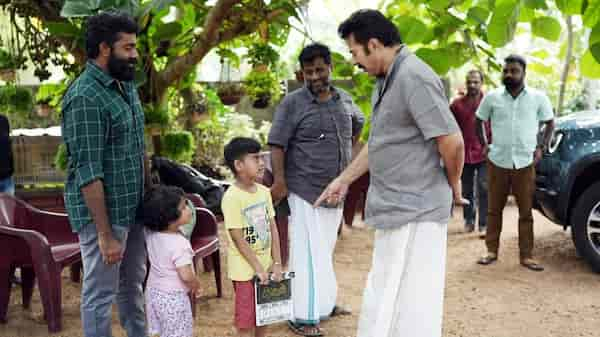
More than our films striving to be progressive and conveying an important subject, we have to greatly respect our audience. When Kaathal released, they accepted and celebrated it. They are replying to the criticism against the film. This happened during the release of The Great Indian Kitchen as well. There was a phenomenon where women united to respond to unnecessary and irrelevant comments against the movie. Similarly, the people have united as one to respond to unrelated comments against Kaathal too, supporting it. And we have to respect that. It’s as important as making an artform like cinema – it’s a revolution for the audience to take it up and they have done it brilliantly. I have to thank them for that.

 Premium
Premium